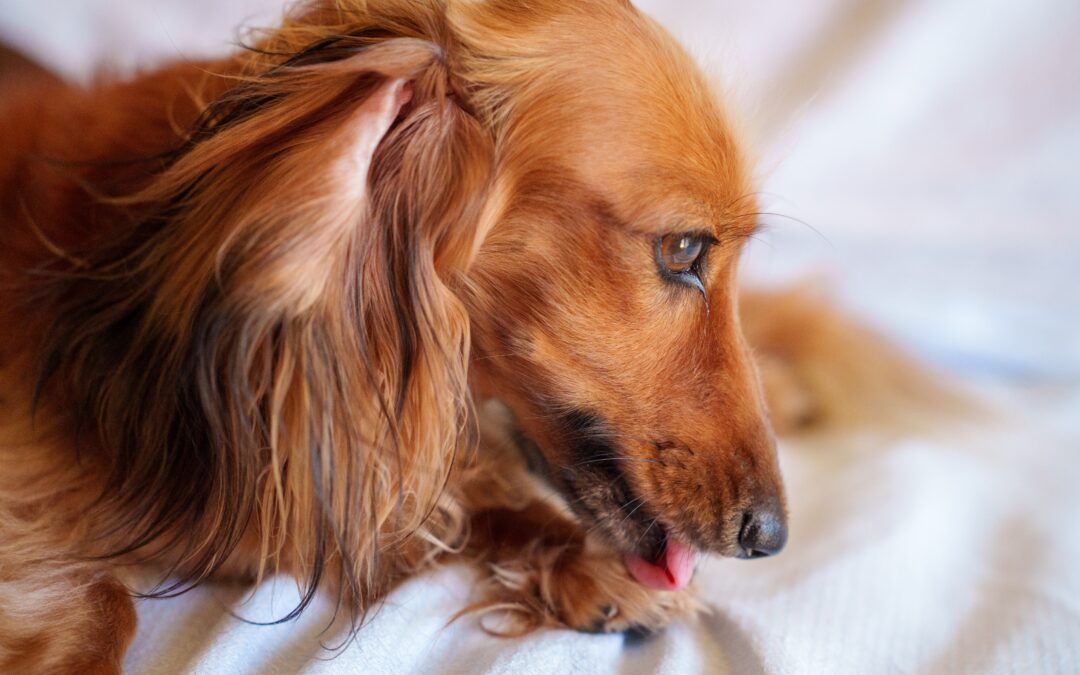Spotting, Treating, and Preventing Hot Spots in Pets
When your pet’s skin becomes intensely itchy, they may scratch, lick, and chew to the point of creating a hot spot. Help your beloved companion find relief from this distressing condition by understanding more about these highly uncomfortable sores.
What are hot spots in pets?
Hot spots, also known as acute moist dermatitis or pyotraumatic dermatitis, are inflamed sores that develop on a pet’s skin. These spots often seem to appear overnight and can rapidly evolve into oozing, painful wounds that cause great discomfort for your pet.
What causes hot spots in pets?
Hot spots are commonly triggered by skin inflammation resulting from environmental, flea, or food allergies. However, anything that induces your pet to excessively lick, chew, or scratch an area until the skin becomes raw can contribute to the development of hot spots.
Hot spots can be caused by:
- Ear infections
- Skin infections
- Matted fur
- Urinary tract infections
- Anal gland issues
How are hot spots in pets treated?
Swift action is crucial in treating your pet’s hot spots to prevent deep skin infections. As soon as you notice a small area of inflammation, it is important to put an Elizabethan collar (i.e., e-collar) on your pet to prevent further irritation of the skin.
When you bring your pet to our hospital for hot spot treatment, we may administer sedation along with a potent analgesic medication, as hot spots can be exceedingly painful to touch. Once your pet is comfortable, we will carefully clip away matted fur to allow air to reach the affected area. Wet and matted fur can foster infection and must be eliminated to facilitate healing of the hot spot.
We will gently cleanse the area with an antiseptic rinse to remove fur and debris, followed by the application of topical medications on clean and dry skin to alleviate itching and treat the infection. Further treatment will depend on the underlying cause of the hot spot, and we may recommend allergy treatment, anal gland expression, ear medication, regular grooming, or other therapeutic measures.
If you notice an irritated and inflamed area on your pet’s skin, do not delay. Contact our team immediately to schedule an appointment before a minor irritation escalates into a large and painful hot spot.

